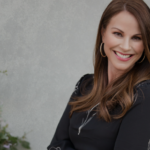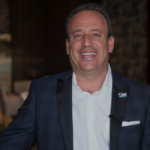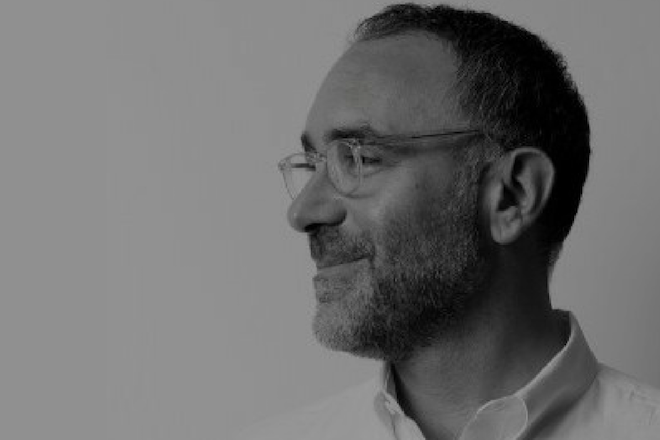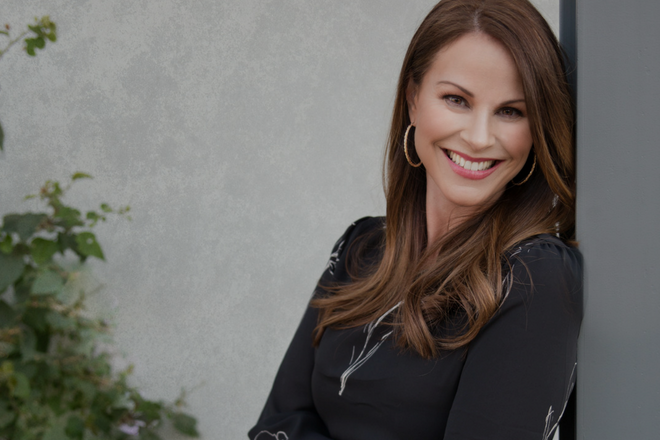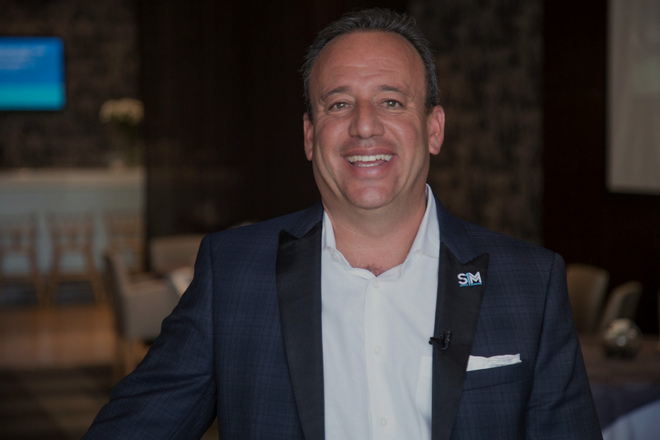“I always felt that the marriage of sort of digital distribution and technology, and sort of the traditional good business was something that I really wanted to pursue as a business person and entrepreneur..”
Brian Berger – Co-Founder of Mack Weldon; Frustrated marketplace for consuming essentials; Investing in the brand & customers; Differentiation & disruption; Having customer feedback; Remaining true to core values.
Segment 1: (Length :04:00) – General Updates; Introduction to Brian Berger and his journey as an entrepreneur; Frustrated by the marketplace for consuming essentials; Going form zero to one.
Brian’s finer points:
I always really was frustrated by the entire experience of shopping for underwear, socks, t-shirts, these sort of wardrobe staples.
“One day, I was in, I was going out for my annual pilgrimage to stock up at Neiman’s Department Store, and the sales person looked at me, and I was like kind of standing there kind of stupefied by the over assortment, and he said, ‘Are you confused, yet?'”
“That was really the moment where I knew that I really had to start this business, because I had been thinking about it for a long time.”
I always felt that the marriage of sort of digital distribution and technology, and sort of the traditional good business was something that I really wanted to pursue as a business person and entrepreneur.
“Category wise, it was really important that I was solvent for myself, because I think a lot of times in business we’re doing things, we’re making products, we’re delivering services, but we’re not really connected directly with what those products and services are.”
“For me, it was really essential that whatever I did it was going to have to be really solvent for myself as the customer. It was really that moment where I decided I had to sort of take a lot of the kind of thoughts that I was having and planning I was doing and really bring it to life.”
“I think that our approach was a little bit counter to what you read about, and hear about, see when you watch Shark Tank and when you read stories on the internet.”
We didn't take the, 'lets Kickstarter it, let's produce a very small lot, or let's present a concept to an audience of people and then generate enthusiasm, chew up the line, help fund that initial development work route.' We really did it in a very traditional manner. I mean, I had a vision for what I wanted to achieve from a product perspective.
“Michael, my cofounder and our product development, early product development team had real expertise in helping to execute that. We essentially, we did a bunch of research, we talked to a lot of people, we visited a lot of factories, but when push came to shove what got us from zero to one was really just having the conviction to do three things.”
“The first, build an assortment of product that truly was unique and differentiated, build it, test it, buy it, own it. Have it in a warehouse, somewhere.”
“The second was designing a brand and customer experience that was reflective of the company that we were trying to build. Modern aesthetic, really clean, very masculine, no sort of bling factor, which I think is really a big deal in this category. Something that really reflected the opposite of what you see in the market. No names printed on the waistband and all that sort of funny stuff that people do.”
“Then, the third piece of it was really making sure that we had a customer experience that was really absolutely the most convenient it could possibly be. It was really those three things.”
We designed and built and bought the product. We invested in the brand development, and design. We launched and built an entire consumer facing website and all the operations to support it, before we sold a single thing.
“There was a decent amount of capital investment as well as personal investment of time to get to that starting point.”
“You only have that one chance to make a first impression and we really had a lot of conviction and really wanted to make sure what we presented to the customer was amazing, as though it had been around for 20 years.”
I think what's really one of the things I'm most proud of is really, honestly, how we shot out of the cannon. We did. We went from lights off to lights on overnight and it's really been very steady growth from there.
Segment 2: (Length :08:00) – Talking with Brian Berger; Investing in the brand and it’s customers; Differentiation and disrupting the market.
Brian’s finer points:
You're trying to interrupt people and say this is different. Especially when you are doing something in categories like we're in.
“Either there’s a subset of the customer base that spends at this price point and is an early adopter and willing to try something new, then you have the majority of guys who are just kind of on autopilot. They couldn’t fathom changing or how it could even be different.”
“That’s really the hurdle that you need to clear. You really have to make sure what you are putting in front of them is truly unique and differentiated, so to do that it’s very hard in a consumer business if you don’t invest in the product development, if you don’t invest in the brand, and the brand differentiation.”
In our case, because we are largely a digital brand if you don't invest in the customer experience, the technology, consumer facing website, and all that goes with that, and so you add all that stuff up and it requires a certain level of investment.
“The alternative is you kind of half bake everything, and that’s what the customer gets. They get sort of a half baked thing, so you kind of wasted that opportunity. I agree that, that requires a certain level of risk. It was a risk we were willing to take, because we believed so wholeheartedly in what we were doing, and that gets back to my earlier point of solvent for yourself.”
“I know kind of the type of profile of consumer I am and I sort of felt pretty confidently that if I felt like all of these claims we were making were credible and the experiences that we were delivering were different and better than chances are a reasonable amount of other guys would want to as well.”
“If I look at and I go, ‘You know what? I don’t really use that brand or like that brand. I’m good,’ so I’ll just have to eat it and just pass on it respectfully. You don’t want to burn the bridge. That kind of mind may work on Jordan’s in a couple years so you don’t want to burn the bridge, but sometimes it does not fit, but sometimes it does.”
“That’s sort of what we found. I think, the software with digital services, with media, with apps, I think your ability to iterate and test on those kinds of things is a lot easier than it is in a consumer business, particularly one with a little bit of range of product and trying to really tell a brand story across more than one product”
Segment 3: (Length :10:00) – Having customer feedback; Remaining true to core values; Managing information.
Brian’s finer points:
“Listening to the customer. Really having customer feedback interactions, really inform everything that we do. I do agree with you is our competitive advantage. It’s our point of view. We sort of feel like, if you, even if you’re in a crowded market space, if people feel like their experience with you is unique from other experiences they have with other brands, even in different categories then that’s really the best marketing strategy. Right?”
You can spend money on Facebook and Google all day long, but nothing is better than that kind of organic customer referral driven marketing.
“I think there’s really two things. The first, is really remaining true to the core values of the company. I think that from and there is a lot to that, there’s a product philosophy, we’re not going to try and be all things to all people, we’re going to try and stay pretty narrowly focused.”
“There’s a marketing philosophy in that we won’t ever spam you, we’re going to be honest and authentic, and straight talk. Only communicate with you about things that we think are valuable to you as a customer, or you as somebody who’s making an investment in the brand.”
“Then also, other things, like what do we stand for? Making sure that we’re doing the right thing by our employees, by our partners, by the world that we’re in, et cetera.”
With all of that, and really making sure that as we grow, we maintain those values. I think, at the business level for me having a business, or having a brand that can live true to all those things without me deeply, deeply managing that, to me, is a real sign of success, because it means that the things, the foundation that you made is so strong that it can live beyond an individual person.
“I’m not looking to get out of my job, it’s really more sort of an indication that we built the business that essentially can operate, grow and continue to evolve, based on the great team that we have, and the great brand that we established, and so forth.”
“Not only does customer dialogue, and data inform the products we make, but it also informs how we market, and communicate with those customers. It informs changes in optimization of our product, it informs streamlining the customer experience in making it better.”
“I think that brands and business, whether they’re in the consumer space are not, that manage information and data well, and use it, rely upon it to inform sort of key strategic decisions in their business, are the brands that are going to be really successful.”
Segment 4: (Length :03:00) – Hustler Thought of the Day:
The most meaningful way to differentiate your company from your competitors, the best way to put distance between you and the crowd is to do an outstanding job with information. How you gather, manage and use information will determine whether you win or lose. - Bill Gates
GENERAL NOTES:
Brian Berger – Co-Founder of Mack Weldon & Market Disruptor
- Brian Berger is CEO and Founder of Mack Weldon, the brand reinventing men’s basics since 2012.
-
Brian CoFounded Mack Weldon with Michael Isaacman, who had held roles in the fashion realm at Tommy Hilfiger and Ralph Lauren. The two were introduced by a mutual friend.
- Price points (on average): $24 for a pair of underwear, $30 for t-shirts, $14 for a pair of socks. They’ve just expanded their offering from underwear and socks to also include polos and sweats.
- Mack Weldon has raised more than $12 million in funding from private and venture investors including RiverPark Ventures and Lyrical Partners.
- Mack Weldon has more than 250,000 customers and adds about 10,000 more each month.
- Prior to founding Mack Weldon, Brian held positions at WebMD; first as Director of Online Media Strategy, then Vice President of Network Revenue Management.
- He also spent three years at Comcast Interactive Media as Vice President of Strategy and Development.
- A graduate of Columbia Business School, Brian resides in New York City, where Mack Weldon is also headquartered.
###
